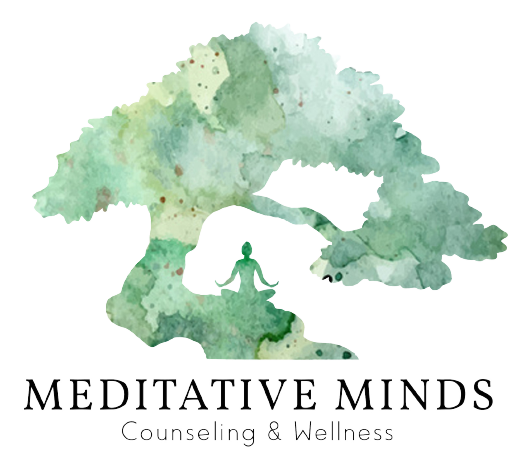Have you ever wondered how to navigate the complex landscape of your own emotions? Emotionally Focused Therapy for Individuals, often abbreviated as EFT, is a powerful approach that can help unlock the key to emotional well-being and personal growth. In this blog, we’ll delve into the essence of EFT, exploring its definition and significance in the lives of individuals. By the end of this journey, you’ll understand how Emotionally Focused Therapy can be a transformative tool in your quest for emotional health and fulfillment.
What Is Emotionally Focused Therapy for Individuals?
Emotionally Focused Therapy for Individuals, commonly known as EFT for Individuals, is a therapeutic approach designed to help individuals better understand, manage, and transform their emotions. It operates on the premise that our emotional well-being and personal growth are intricately linked to our ability to navigate our feelings effectively. EFT empowers individuals to explore and make sense of their emotions, ultimately leading to healthier self-relationships and improved mental health. This approach focuses on identifying emotional patterns, fostering self-compassion, and creating a secure emotional foundation for personal development.
Key Principles of Emotionally Focused Therapy
Emotionally Focused Therapy for Individuals (EFT) is rooted in several core principles that form the foundation of this transformative therapeutic approach. Understanding these principles is essential for grasping the essence of EFT and how it operates in individual therapy.

Attachment Theory and Its Role in EFT
At the heart of EFT lies attachment theory, a psychological framework that explores the bonds and connections individuals form with others throughout their lives. EFT draws heavily from attachment theory to understand how these emotional connections impact an individual’s well-being. It acknowledges that humans are inherently social beings, wired to seek and maintain close relationships. Through the lens of attachment theory, EFT helps individuals identify and navigate their attachment patterns, which can influence how they relate to themselves and others.
Emotion as a Core Focus in Therapy
One of the distinctive features of EFT is its emphasis on the centrality of emotions in the therapeutic process. In EFT, emotions are not merely byproducts of experiences; they are recognized as powerful messengers carrying vital information about an individual’s needs, desires, and fears. By exploring and understanding these emotions, individuals can gain valuable insights into their inner worlds. EFT encourages individuals to acknowledge and express their emotions in a safe, non-judgmental space, leading to emotional healing and growth.
Shaping Secure Emotional Bonds
EFT aims to shape secure emotional bonds, not only with others but also with oneself. This principle underscores the idea that developing a strong and nurturing relationship with one’s emotions is essential for overall well-being. EFT helps individuals recognize their emotional responses and work towards creating a safe internal environment in which they can understand, accept, and nurture their feelings. Individuals can build greater self-compassion, self-esteem, and resilience through this process.
The Emotionally Focused Therapy Process
Emotionally Focused Therapy for Individuals (EFT) is a structured and goal-oriented approach that guides individuals through self-discovery, emotional healing, and personal growth. It follows a well-defined process, which can be broken down into key components, each playing a crucial role in achieving therapeutic goals.
Assessment and Identifying Emotional Patterns
The first step in EFT is assessment. During this phase, the therapist collaborates with the individual to gain insight into their emotional world. This involves identifying recurring emotional patterns, triggers, and the individual’s unique way of processing and responding to feelings. Through this assessment, the therapist and the individual work together to construct a comprehensive map of the individual’s emotional landscape. This foundational step sets the stage for the remainder of the EFT process.
The Three Stages of EFT
EFT for individuals unfolds in three distinct stages, each serving a specific purpose:
- De-escalation: In the initial stage, the therapist and individual focus on reducing emotional distress and enhancing emotional regulation. This involves understanding how certain emotional triggers can lead to unproductive responses, such as anxiety, avoidance, or self-criticism. By recognizing these patterns, individuals learn to manage their emotions more effectively and find relief from emotional turmoil.
- Restructuring: This stage delves into the heart of emotional transformation. Individuals are guided to explore and reframe their core emotional experiences. It involves revisiting past experiences, understanding how these experiences have influenced current emotional patterns, and reshaping those patterns in a more constructive and adaptive way. This stage often leads to profound insights and emotional healing.
- Consolidation: The final stage involves integrating the changes made throughout the therapy process. It’s about solidifying the newly acquired emotional skills and fostering self-compassion. The individual develops a deeper connection with their emotions and uses this newfound understanding to navigate life’s challenges more effectively.
Techniques and Interventions Used in EFT
Emotionally Focused Therapy employs a variety of techniques and interventions tailored to each individual’s unique needs. These may include guided visualization, expressive writing, role-playing, and mindfulness practices. The therapist creates a safe and supportive environment where individuals can explore their emotions openly and without judgment. Techniques are designed to help individuals identify, express, and process their feelings, ultimately leading to emotional growth and well-being.
Who Can Benefit from Emotionally Focused Therapy?
Emotionally Focused Therapy for Individuals (EFT) is a versatile therapeutic approach that holds the potential to bring about positive change in the lives of a wide range of individuals. Whether struggling with relationship challenges, emotional trauma, or simply seeking to enhance your emotional well-being, EFT offers a valuable resource for personal growth and healing.

Individuals Struggling with Relationship Issues
EFT initially gained recognition for its effectiveness in couples therapy, but its principles and techniques have been adapted for individuals facing relationship struggles. If you are caught in a cycle of unhealthy relationship dynamics, whether with a partner, family member, or friend, EFT can help you break free from these patterns. By exploring your emotional responses and attachment styles, you can gain insights into the dynamics that may be causing conflicts or emotional distance. EFT equips individuals with the tools to create healthier, more fulfilling connections.
Those Dealing with Emotional Trauma and Distress
Emotional trauma and distress can be profoundly debilitating, impacting various aspects of life. EFT provides a structured path for healing emotional wounds from past traumatic experiences or ongoing distress. Through de-escalation, restructuring, and consolidation, EFT helps individuals confront and make sense of their emotions, enabling them to find relief, resilience, and a sense of empowerment. This approach offers a safe and supportive space for processing difficult emotions and moving towards a place of emotional well-being.
Anyone Seeking to Improve Their Emotional Well-Being
EFT is not limited to those in crisis or facing specific challenges. It is a valuable tool for anyone who wishes to improve their emotional well-being and personal growth. In a fast-paced and often emotionally demanding world, understanding and managing one’s emotions can be a key to a happier and more balanced life. EFT equips individuals with the skills to navigate their feelings more effectively, fostering self-awareness, self-compassion, and a deeper connection with their emotions.
Practical Applications of EFT for Individuals
Emotionally Focused Therapy (EFT) for Individuals is not just a theoretical concept; it’s a therapeutic approach that can be profoundly transformative when put into practice. In this section, we’ll explore the practical applications of EFT for individuals, offering insights on how to make the most of this valuable resource for emotional healing and personal growth.
Finding an EFT Therapist
The first and crucial step in applying EFT for individuals is to find a qualified therapist specializing in this approach. Here’s how you can go about it:
- Research: Start by researching therapists in your area who offer EFT for Individuals. Online directories, healthcare provider referrals, and trusted friends’ recommendations can be valuable resources.
- Credentials: Verify the therapist’s credentials and qualifications. They should have specific training and certifications in EFT or be affiliated with reputable organizations dedicated to this therapeutic approach.
- Consultation: Schedule initial consultations or phone calls with potential therapists. Use this opportunity to gauge their approach, ask questions, and assess whether you feel comfortable working with them.
- Experience: Inquire about the therapist’s experience working with individuals and their expertise in EFT. Experience in addressing your specific concerns or emotional challenges is a plus.
- Rapport: Trust your instincts. A strong therapeutic relationship is essential for successful EFT. Choose a therapist with whom you feel a genuine connection and are comfortable sharing your innermost feelings.
Preparing for Your First EFT Session
Preparing for your first EFT session can help you make the most of this important step in your journey:
- Set Goals: Reflect on what you hope to achieve through EFT. Identify specific emotional challenges or areas of personal growth you want to address. Sharing these goals with your therapist will help guide your sessions.
- Emotional Awareness: Start paying closer attention to your emotional responses and patterns in your daily life. Keeping a journal of your emotional experiences can give you and your therapist valuable insights.
- Openness: Approach your first session with an open mind and a willingness to explore your emotions. EFT thrives on your ability to engage deeply with your feelings.
Emotionally Focused Therapy for individuals is a powerful tool for personal growth and healing. It offers a pathway to understanding and transforming our emotions, providing a safe space to explore the depths of our inner world. The benefits are immense, from improved self-awareness and emotional regulation to enhanced relationships and overall well-being. If you’re considering EFT, we encourage you to take the next step to emotional healing and growth. Don’t hesitate to reach out to us – our compassionate team is here to guide you towards a brighter, more emotionally fulfilling future. Your emotional well-being matters and EFT can help you achieve it. Contact us at 8052858466 to embark on this transformative journey.


